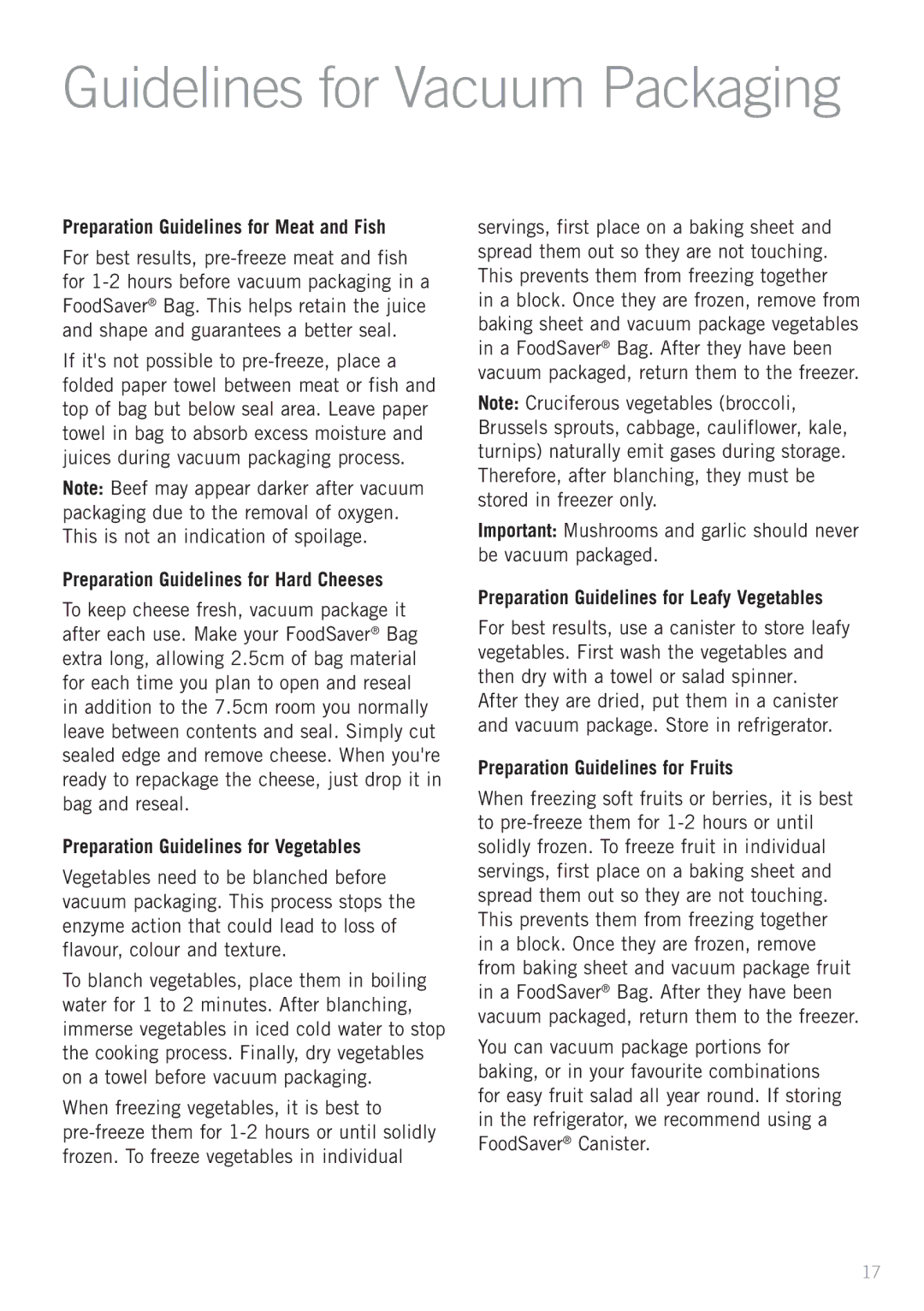Guidelines for Vacuum Packaging
Preparation Guidelines for Meat and Fish
For best results,
If it's not possible to
Note: Beef may appear darker after vacuum packaging due to the removal of oxygen. This is not an indication of spoilage.
Preparation Guidelines for Hard Cheeses
To keep cheese fresh, vacuum package it after each use. Make your FoodSaver® Bag extra long, allowing 2.5cm of bag material for each time you plan to open and reseal in addition to the 7.5cm room you normally leave between contents and seal. Simply cut sealed edge and remove cheese. When you're ready to repackage the cheese, just drop it in bag and reseal.
Preparation Guidelines for Vegetables
Vegetables need to be blanched before vacuum packaging. This process stops the enzyme action that could lead to loss of flavour, colour and texture.
To blanch vegetables, place them in boiling water for 1 to 2 minutes. After blanching, immerse vegetables in iced cold water to stop the cooking process. Finally, dry vegetables on a towel before vacuum packaging.
When freezing vegetables, it is best to
servings, first place on a baking sheet and spread them out so they are not touching. This prevents them from freezing together
in a block. Once they are frozen, remove from baking sheet and vacuum package vegetables in a FoodSaver® Bag. After they have been vacuum packaged, return them to the freezer.
Note: Cruciferous vegetables (broccoli, Brussels sprouts, cabbage, cauliflower, kale, turnips) naturally emit gases during storage. Therefore, after blanching, they must be stored in freezer only.
Important: Mushrooms and garlic should never be vacuum packaged.
Preparation Guidelines for Leafy Vegetables
For best results, use a canister to store leafy vegetables. First wash the vegetables and then dry with a towel or salad spinner.
After they are dried, put them in a canister and vacuum package. Store in refrigerator.
Preparation Guidelines for Fruits
When freezing soft fruits or berries, it is best to
You can vacuum package portions for baking, or in your favourite combinations for easy fruit salad all year round. If storing in the refrigerator, we recommend using a FoodSaver® Canister.
17
